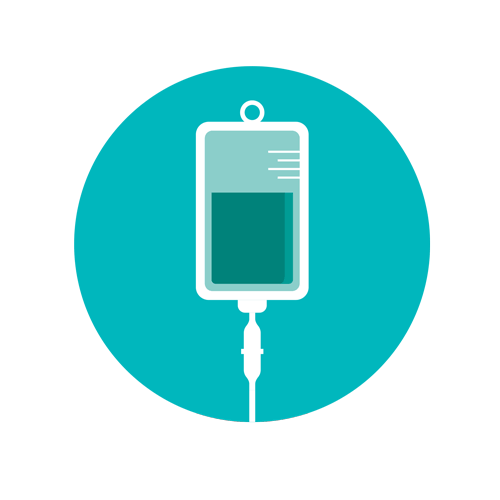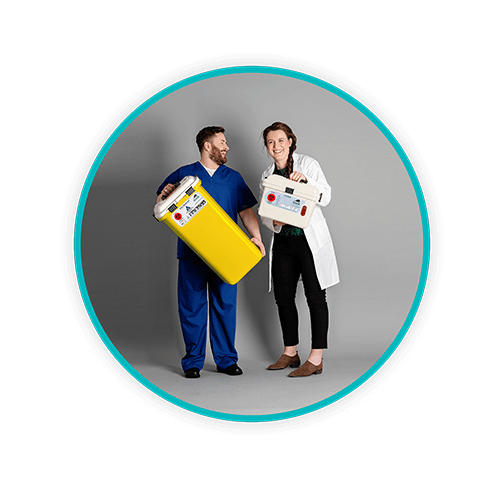Louisville Healthcare Waste Management Tips

Louisville is home to not only Churchill Downs, home of the Kentucky Derby, but of museums, historic buildings and tours, and of course, distilleries producing fine Kentucky whiskeys. This famous city of the Bluegrass State is located in Jefferson County, also home to numerous medical and trauma centers, amounting to approximately 3,000 beds, not counting long-term care centers, and outpatient treatment centers, assisted living, nursing home, or rehabilitation centers.
Every one of those hospitals, every physician’s office, and every dental practice and everything in between that provides healthcare services produces some type of medical waste. You know who you are. Do you know the rules regarding medical waste disposal in your city and county?
ASK US FOR A WASTE CONSULTATION
Kentucky’s medical waste management oversight

Before providing a handful of Louisville medical waste management tips, it’s important to know exactly how the state of Kentucky defines that waste. Sure, it starts with medical waste streams, segregation, and proper handling, storage and disposal, but it’s also important to know that in Louisville – as well as throughout the state of Kentucky – that state government is the primary overseer of medical waste. That applies to local levels too.
Yes, the state of Kentucky follows the guidelines of Federal Environmental Protection Agency regulations when it comes to medical waste, but as with many other states in the country, state laws are often more stringent than federal guidelines. Biomedical waste management in Kentucky is serious business – even if (spoiler alert) it is a tad difficult to find all the rules.
The state of Kentucky has few “specific” regulations regarding medical waste management and more than one agency has jurisdiction over medical waste.
Does not mean that Louisville healthcare waste management doesn’t exist? Not at all. The state of Kentucky does have (although you do have to go looking for them) regulations on waste characterization, or type (waste stream), and how to treat, handle, label, store and transport and ultimately dispose of medical waste.
What does make it rather confusing is that state regulations overlap numerous organizations, not only in Louisville, but everywhere else in Kentucky. That means you may be dealing with the Public Health Department, local and state Environmental Departments, Labor Departments, and Transportation Agencies all at the same time in determining exactly what you can and cannot do in regard to biohazard waste management.
To make your life a little easier, take a moment to review the following tips for dealing with “regular” or biohazard waste management in Louisville.
Tips to maintain medical waste management compliance in Louisville

Louisville (and the state of Kentucky) defines medical waste that have been broken down into categories that include:
- Sharps Disposal
- Unused sharps
- Human blood and blood products
- Pathological waste
- Cultures and stocks
- Isolation waste
- Animal waste (in certain categories)
The state of Kentucky has specific regulations based on the type of healthcare facility that produces potentially biohazard waste. Such facilities include ambulatory surgical centers, clinics, and specialized health clinics, medical tech services such as labs, mobile health scenarios, and so forth. For detailed information, after a little digging, you can find information on the website of the Commonwealth of Kentucky’s Energy and Environment Cabinet.
 You’ll find some information under the Environmental Protection heading, and then the Hazardous Waste Branch, the state of Kentucky’s authority for waste regulations. On the main page for the Hazardous Waste Branch you’ll find, in a sidebar, Kentucky Administrative Regulations for hazardous waste (Chapter 39) as well as Kentucky revised statutes for hazardous waste (Chapter 224). You’ll also find a link to instructions, checklists, and hazardous waste forms.
You’ll find some information under the Environmental Protection heading, and then the Hazardous Waste Branch, the state of Kentucky’s authority for waste regulations. On the main page for the Hazardous Waste Branch you’ll find, in a sidebar, Kentucky Administrative Regulations for hazardous waste (Chapter 39) as well as Kentucky revised statutes for hazardous waste (Chapter 224). You’ll also find a link to instructions, checklists, and hazardous waste forms.
- Louisville healthcare providers should be aware that treatment methods of medical waste come under the purview of the Kentucky Cabinet for Health and Family Services. Certain healthcare facilities throughout Kentucky are required to treat their medical waste either on-site or off-site. Whenever possible, it is urged that hazardous medical waste be treated on-site to render it non-hazardous before it is taken from the property by a medical waste disposal business.
- Be prepared to do a bit of digging for specific information. The Kentucky Cabinet for Health and Family Services does provide links to, for example, a number of healthcare facility regulations and statutes under Title 902 such as medical laboratories, health services and facilities, each broken down by chapter and statute number. However, finding detailed information regarding specific types of treatments allowed in the state of Kentucky for hazardous waste handling, storage and transportation, and so forth, can be challenging.
- Kentucky’s Safety and Health Program overseas handling, labeling, and storage of medical waste in a healthcare environment. Specific guidelines are found under Kentucky’s Labor Cabinet regulations. Infectious waste must be segregated (in hospitals, nursing homes, and public health facilities). That includes sharps. That waste is then to be incinerated or autoclaved or treated through other approved methods for rendering that waste non-hazardous before it’s taken to a disposal facility. Several landfills in the state of Kentucky are known as “sanitary” and will not accept medical waste unless it’s been previously treated and rendered non-hazardous at a medical waste transfer station.
- Kentucky’s Department for Environmental Protection Division of Waste Management also has detailed requirements for permits that identify solid waste facilities as well as other types of waste that are acceptable at designated landfills. You can find more information on this under Kentucky’s administrative rules (401 KAR 47:080).
- Be patient and diligent. It is the responsibility of a medical waste generator to properly segregate, handle, label, store and transport medical waste. Biomedical waste management is taken seriously in Louisville, even if those regulations are hard to find.
Daniels Health supports The Blue Grass State
Daniels Health brings decades of experience to the table when it comes to medical waste management processes, resources, services, and products that promote safety of healthcare workers, the public health, and the environment. We know Kentucky’s state and local regulations are spread all over the place – literally – so we know the challenges many medical waste generators face when it comes to maintaining compliance. We know where to look and how to clarify healthcare waste regulations.
For help navigating Kentucky’s healthcare waste regulations or for additional information about Daniels Health and our products and services, give us a call today!
Let's Talk!
Your time is valuable, and we don’t want to play hard to get. You can either phone us directly on the details listed on our contact page, or feel free to fill out this short form and one of our team members will get back to you as quickly as possible.
